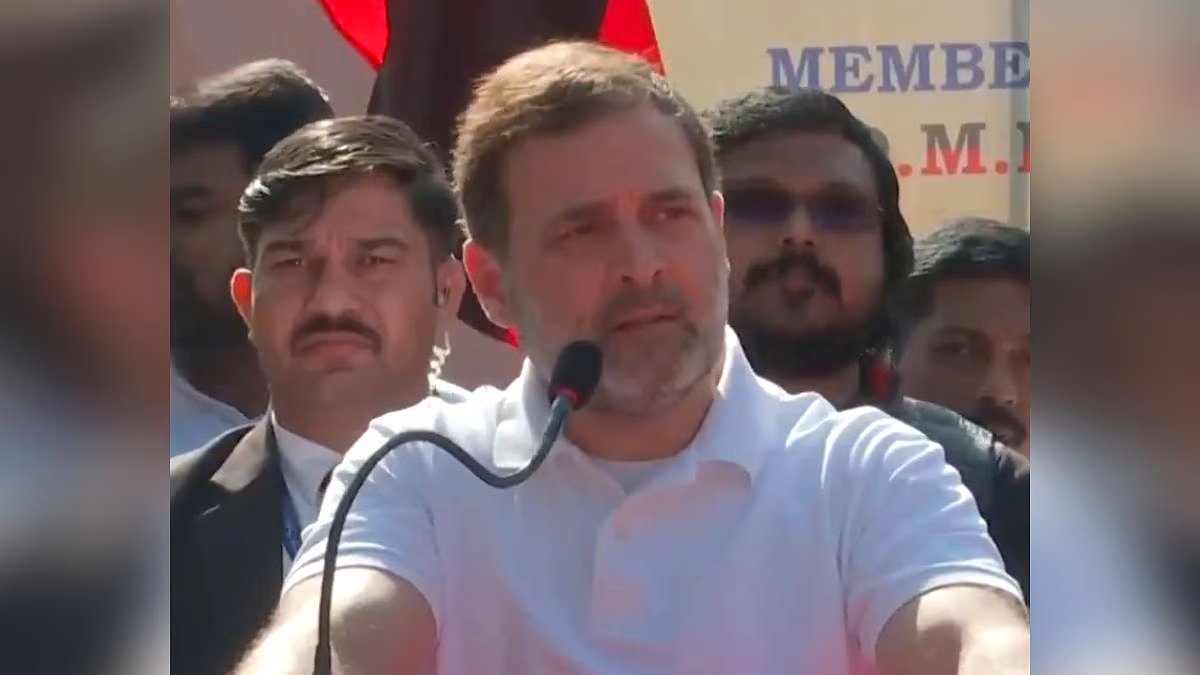
New Delhi: Congress leader and Lok Sabha Leader of Opposition Rahul Gandhi has criticized the Rashtriya Swayamsevak Sangh (RSS), accusing them of trying to erase India’s diverse histories, cultures, and traditions. Speaking at a protest organized by the DMK students’ wing against the University Grants Commission (UGC) draft rules, Gandhi claimed that the RSS seeks to impose a singular idea, history, tradition, and language across the nation.
He stated, “For some time now, I have been saying that the RSS aims to eliminate all other histories, cultures, and traditions in this country. That is their fundamental goal.” He further asserted that the RSS’s assault on the Constitution is part of a broader agenda to control India’s cultural and educational framework. “They attacked the Constitution because they want to enforce their singular idea—one history, one tradition, and one language,” he added.
Gandhi emphasized that the RSS’s influence on the education system is an attempt to further their agenda, expressing his support for protests like the one held by the DMK students. “I hope to see more protests like this because the RSS must understand that they cannot undermine the Constitution, our states, or our cultures and histories,” he remarked.
The protest in New Delhi was in response to the proposed changes in the UGC draft rules, which the DMK students believe jeopardize India’s federal education structure. The new draft guidelines allow candidates to qualify for faculty positions at higher education institutions by passing the UGC-NET in a subject of their choice, regardless of their undergraduate and postgraduate degrees. Education Minister Dharmendra Pradhan announced these guidelines, which also modify the selection process for vice-chancellors by broadening eligibility criteria to include professionals from academia, research, public policy, public administration, and industry. According to the new rules, the subject of a PhD will take precedence over the disciplines studied in undergraduate and postgraduate programs for faculty selection.
